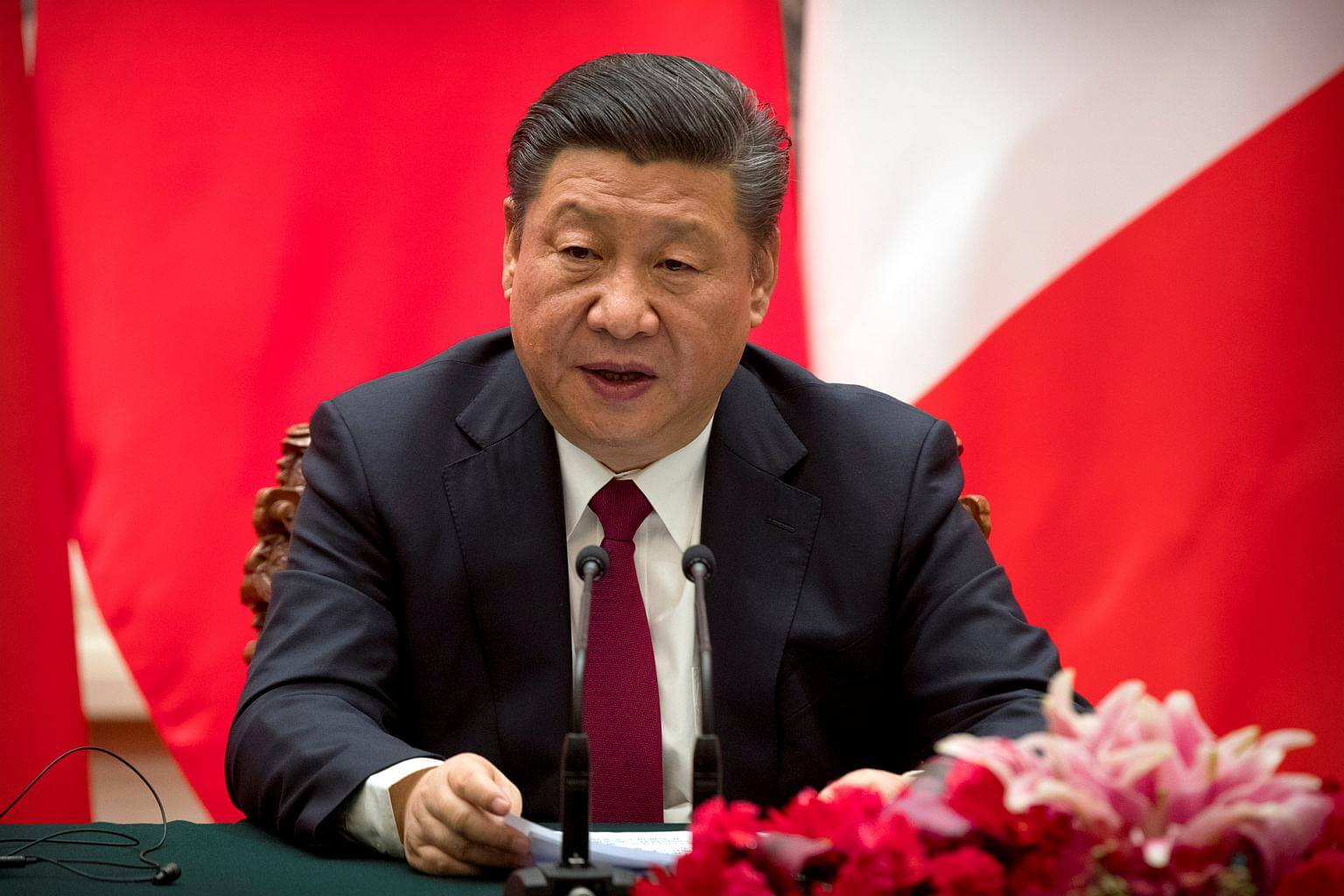China said to hold key conclave ahead of annual legislative meetings in March
Sign up now: Get ST's newsletters delivered to your inbox

President Xi Jinping will convene a Communist Party meeting within days to select China's next government, including monetary and financial regulators.
PHOTO: REUTERS
Follow topic:
SHANGHAI/BEIJING (BLOOMBERG) - President Xi Jinping will convene a Communist Party meeting within days to select China's next government, including monetary and financial regulators, according to people familiar with the matter.
The party's top 400 officials were expected to gather in Beijing ahead of annual legislative meetings next month, according to four people with knowledge of the matter.
The session would approve personnel appointments and government restructuring decisions to be publicly ratified by the legislature, said three of the people, who requested anonymity because they're not authorised to speak to media.
It would be the party's third full Central Committee meeting since Xi secured a second five-year term as leader in October, underscoring the scale of his efforts to reshape the government.
The committee has not met so many times during the same period since the process was standardised four decades ago.
With current People's Bank of China Governor Zhou Xiaochuan expected to retire soon and a restructuring of the financial oversight system as yet unfinished, Xi now has an opportunity to install his favored candidates, potentially transforming the leadership of the central bank, as well as banking and insurance regulators.
The plenum will lay the ground for National People's Congress meetings that start March 5, where the president, premier and other top cabinet figures will be formally appointed to new terms.
The Central Committee's International Communication Office didn't immediately respond Thursday (Feb 22) to a faxed request for comment on the meeting.
The strongest signal yet of Zhou's impending retirement came in January.
A personnel transition in the top economic and financial policy positions has implications for China's current battle to defuse its ticking time bomb of aggregate debt - which stands at around 260 per cent of output and growing - without crashing the economy.
As China currently contributes around one-third of global growth, the appointments matter far beyond Beijing.
As Premier Li Keqiang is expected to retain his post, attention is likely to focus on Xi's pick to lead the central bank, an institution that has garnered increased stature under Zhou and may take a leading role in the Financial Stability Development Committee created last year to tackle China's unruly financial sector.
While current bank regulator chief Guo Shuqing and Hubei provincial party chief Jiang Chaoliang have both been tipped for that post, Xi's top economic policy adviser and Politburo member Liu He has recently been named by analysts in connection with the top monetary policy job and a vice's premier's post.
Such appointments would elevate him to an economic-policy status unparalleled since Zhu Rongji simultaneously led the PBOC and held a vice premier title in the 1990s.
Also being watched is the fate of former anti-graft chief Wang Qishan, whom the South China Morning Post newspaper reported in December was expected to be named vice president.
Wang was selected as an NPC delegate last month, positioning him for another official role.
The Central Committee also met in January, when it approved the first amendments to the state constitution in 14 years, which also require the NPC's approval.
The amendments would add Xi's governing philosophy, "Xi Thought," to the document and allow the creation of a more powerful disciplinary agency to police public officials.

